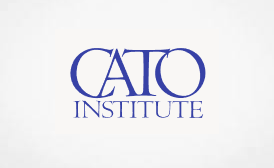Cato…
Alarming news for university independence, from the New York Times: “The Trump administration on Thursday demanded that Columbia University make dramatic changes in student discipline and admissions before it would discuss lifting the cancellation of $400 million in government grants and contracts.”
In particular, their letter demanded that Columbia 1) “place the school’s Middle Eastern, South Asian, and African Studies Department under ‘academic receivership,’ ” 2) impose “expulsion or multi-year suspension” on students who encamped in public areas on campus, 3) commit to “arrest and removal” of any protesters “who foster an unsafe or hostile work or study environment or disrupt university operations,” and 4) centralize discipline in the office of the university president, with any appeal taking place also within the president’s office.
The first of these is a frank assault on a private university’s freedom to maintain an academic department that federal overseers regard as ideologically hostile. The second overrides the university’s judgment on disciplinary matters, not all of which relate closely to alleged civil rights violations, in this case, failure to protect Jewish students from anti-Semitism. The third is ironic given that writers critical of progressive dogma (I am one) have long argued that the slippery wording “hostile environment” often works to further suppression of speech that may hurt feelings or be offensive but is not threatening. Indeed, no federal civil rights law I know of prescribes that colleagues who create a hostile environment in a workplace be arrested on the spot. The fourth is especially interesting because it suggests that the university must furnish one specific neck to wring should the feds’ disciplinary expectations not be met. What barriers, I wonder, would remain to prevent Washington from picking up the phone and ordering the expulsion of a particular student?
“We expect your immediate compliance,” officials said in the letter.
All this is based on the enormous coercive leverage that federal funding of universities puts in the hands of Washington—an oft-told story both elsewhere and in this space. But formidable as that coercive leverage is, it is still subject to some legal limits that appear not to have been respected here.
The Trump administration announced on March 7 that it was canceling $400 million in grants and contracts to Columbia because the university’s handling of Middle East protests violated the rights of Jewish students to be free of discrimination under federal law. As University of Alabama law professor Paul Horwitz notes, the multi-agency announcement did “not specify the grants being canceled, the basis for canceling those grants in particular, the statutory or contractual basis for doing so, or anything else of real use. Nor does it link to any documents doing so.”
Nor did it make any reference to having afforded the university an opportunity to rebut the charges at a hearing or dispute the scope of penalties. University of Michigan law professor Sam Bagenstos wrote:
This ‘“immediate cancellation” violates the law. If the Administration thinks Columbia has violated Title VI by being deliberately indifferent to antisemitic harassment, it has to give Columbia a chance for a hearing first, make findings on the record, and wait 30 days.
Even then, the suspension or termination of funds can’t extend beyond “the particular program, or part thereof, in which such noncompliance has been so found.” Congress broadened Title VI in 1988 to provide institution-wide coverage, but it left in place the “pinpoint provision” limiting any *fund cut-off* to the “particular… part” of a program that’s not in compliance.)…
There’s no free-floating “we don’t like what’s going on on campus” power to cut off federal funds.
If that’s so, then a failure to prevent or remedy mistreatment of protected-group undergrads in, say, libraries or cafeterias, if proved, would not necessarily furnish a legal basis for canceling a research contract at the medical school or physics lab.
Read more https://www.cato.org/blog/using-funding-lever-feds-demand-sweeping-changes-columbia-university-legal




